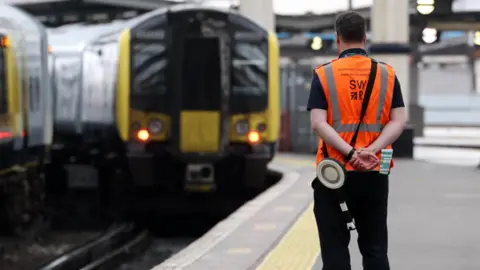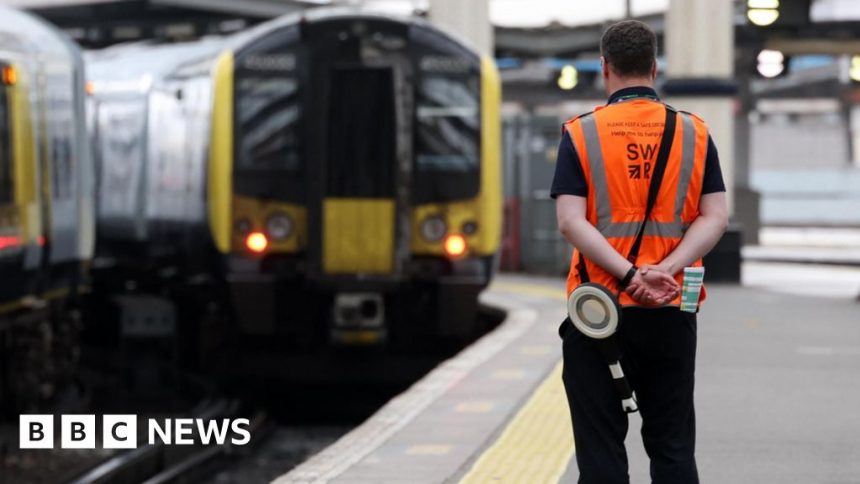Train drivers accept pay deal to end strike action
 EPA
EPATrain drivers have accepted a pay deal that will see the end of more than two years of strike action in England, Scotland and Wales.
Aslef union members accepted an offer which included a 5% backdated pay rise for 2022-23, a 4.75% rise for 23-24, and a 4.5% increase for 24-25.
The package had been agreed by union officials and the government in August, but required the backing of members in a vote.
Industrial action has caused widespread disruption on the railways since strikes began in July 2022.
The breakthrough heralds the end of industrial action with 16 train operating companies, which saw drivers stage 18 strikes and take part in several overtime bans, leading to cancelled services.
Some strikes caused an almost complete shutdown of railway lines in England and some cross-border services, including during major sporting and public events.
Aslef, which claims to represent more than 21,000 train drivers, said 96.6% of its membership who voted backed the deal. The turnout was 84%.
Mick Whelan, the union’s general secretary, said this was the end of the longest train drivers’ strike in history.
“It was not a fight we sought, or wanted. All we sought after five years without a pay rise, working for private companies who, throughout that period, declared millions of pounds in profits and dividends to shareholders, was a dent in the cost of living,” he said.
A crucial part of the deal is that there will be no changes to working conditions, a major stumbling block which resulted in previous talks breaking down.
Aslef rejected previous deals, arguing drivers were being asked to sacrifice too much in exchange for too low a wage rise.
The average train driver salary was £60,055 in 2023, according to the Rail Delivery Group, which represents train companies.







